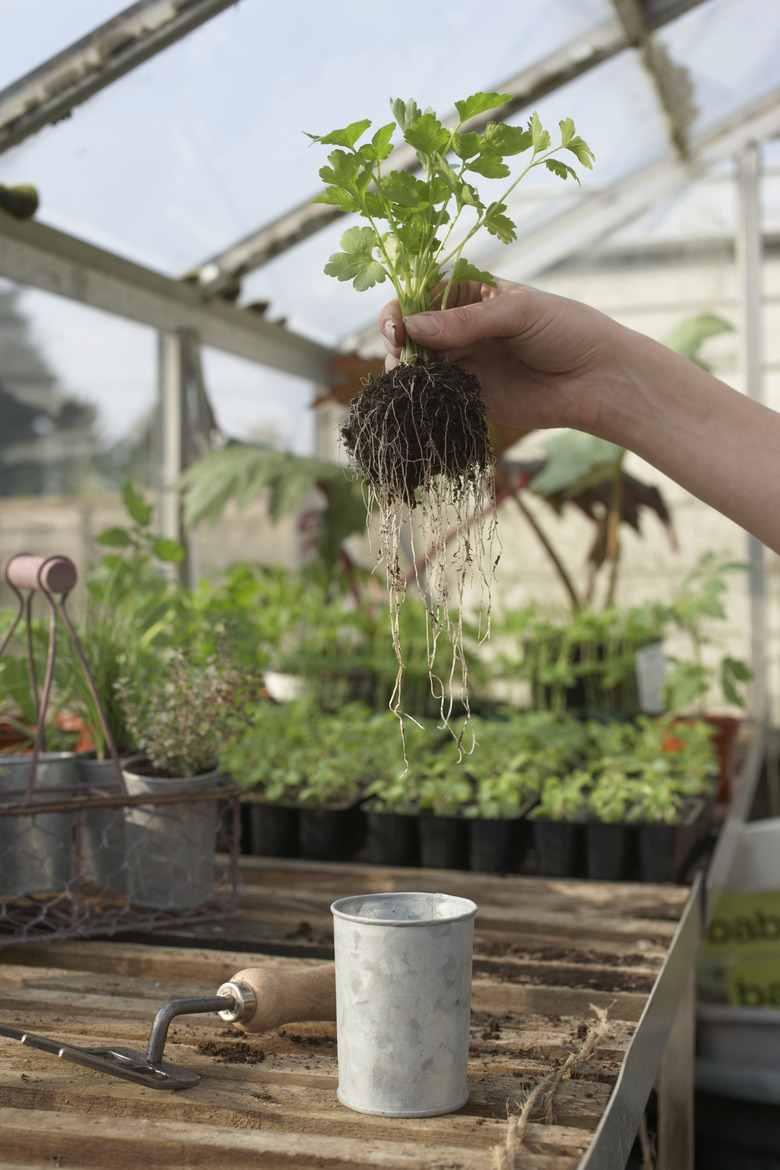What Is A Responding Variable In Science Projects?
Scientists design experiments to search for cause-and-effect relationships; where changes to one thing can cause a predictable change in something else. These changing quantities are called variables. Many other variables have to work together for a well-designed science project to help reveal a cause-and-effect relationship.
TL;DR (Too Long; Didn't Read)
The responding variable is the change that happens in an experiment because of something the experimenter is changing to test the truth of a hypothesis.
Example Plant Experiment
Example Plant Experiment
If we wanted to see the effect of light on sunflowers we could design an experiment with three plants. The experimenter could manipulate light intensity to observe changes, placing one plant under an artificial UV lamp at high intensity, one under a UV lamp at moderate intensity and one in a dark room. We may hypothesize that the less sun a plant receives the less it will grow and decide to measure plant growth to confirm or reject this prediction.
The Responding Variable is the Effect
The Responding Variable is the Effect
In the example experiment, sunlight intensity would act as our independent variable and plant growth would act as our responding variable. All other factors would need to be controlled to rule out other influences on growth, called the controlled variables. As an experimenter, the independent variable is what you change, the responding variable is what you observe and the controlled variables are what you keep the same. If we find that there are differences at the end of the experiment, we would begin to conclude that the independent variable is the cause effecting the responding variable. If we repeated the experiment we would expect the same cause-and-effect relationship.
The Responding Variable is Dependent
The Responding Variable is Dependent
Plant growth would be the effect dependent upon the cause: changes in light intensity. This is why the responding variable is also called the dependent variable. This dependency is amplified by the controlled variables. For example, if we placed the plants in different rooms at different temperatures, used different plant species or gave them different amounts of water, the response of plant growth could be due to one of these factors or a combination. Therefore, it is very important to protect the responding variable through the controlling variables, allowing the response to be dependent upon only one changeable variable.
The Responding Variable is a Factual Observation
The Responding Variable is a Factual Observation
We can observe the responding variable as fact, but cause is not a fact. In the example experiment, the changes in growth may have been too small to observe, but a stem-height measurement could reveal differences between the plants. This difference is factual, but how we explain the connection between light intensity and plant growth is not. Repeatability is an important factor in determining the truth of an apparent cause-effect relationship. Future experimenters can use the factual measurements or observations of the responding variable and compare them to the effect in their own experiment.
Cite This Article
MLA
Kemlo, Lindsey. "What Is A Responding Variable In Science Projects?" sciencing.com, https://www.sciencing.com/responding-variable-science-projects-14574/. 25 July 2018.
APA
Kemlo, Lindsey. (2018, July 25). What Is A Responding Variable In Science Projects?. sciencing.com. Retrieved from https://www.sciencing.com/responding-variable-science-projects-14574/
Chicago
Kemlo, Lindsey. What Is A Responding Variable In Science Projects? last modified August 30, 2022. https://www.sciencing.com/responding-variable-science-projects-14574/
